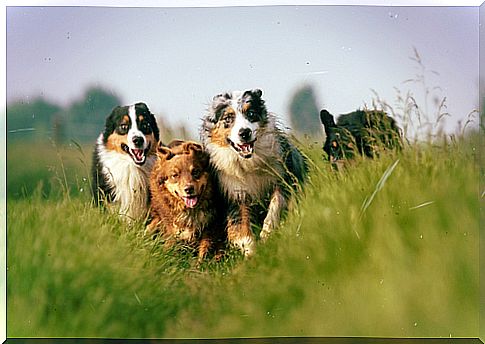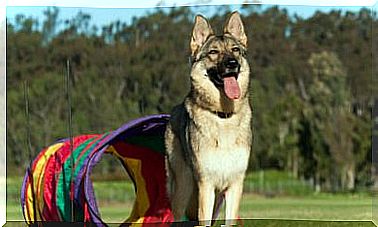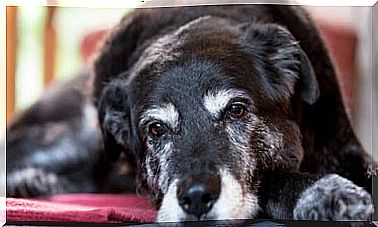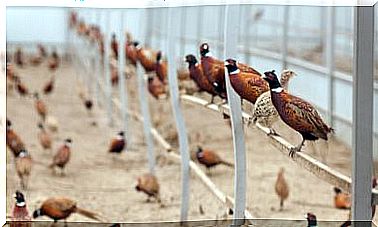At What Age Do Dogs Start Barking?

Barking is one of the ways that dogs communicate and –as they do for different reasons– they have a varied collection of “wow”. But they don’t just bark. They also grunt, moan, howl, cry, complain. And, if we leave the sound chapter, we can get into body language, which has its ears and tail as its strengths. But, at what moment do these animals begin to make sounds?
Barking is for dogs

At two to three weeks of age, puppies make their first vocalizations : growls and whines. They will do it right after they start to open their eyes and as a way of calling their mother, in search of food and warmth.
Around the seventh week, they start with a tiny barking. However, these times will depend on the races. Some, more lazy, can take up to the 16th week of deadline to manifest themselves in this way.
Dogs, from a very young age, bark for various reasons :
- To express excitement during the game.
- To indicate that they are hungry, or that they need to go out to relieve themselves.
- Because they long for their favorite toy.
If you have just adopted a puppy, you should know that they quickly learn that, by barking, they get your attention.
For this reason, the ideal is that you start with your dog’s education from the beginning, emphasizing not rewarding the barking that requires attention, since you would be reinforcing a bad habit.
As your pet grows, you will learn to identify its different types of barking. For instance:
- When it detects a supposed threat (fear)
- To repel an intruder approaching your territory (defense)
- When summoning another dog to play (social)
- As a form of threat to a (dominant) competitor
And while barking varies by breed, smaller dogs tend to bark more.
How do dogs learn to bark?

Your puppy will use his peers as a source of inspiration. If you hear them barking, that’s a number since it will do the same. If you pay attention, it is not uncommon that, when a dog starts barking in the neighborhood, it soon forms a chorus with all its neighbors.
If there is an adult dog in your house, surely your puppy will use it as a source of inspiration and will imitate its actions. And it is obvious that barking will not be the exception to the rule.
However, it does not end here when it comes to barking. It may respond to barking coming from a television on or to the “woof, woof” with which humans may incite it. Barking can also be triggered by sirens, car alarms, and even high-pitched music.
While your puppy is socializing, he may bark at any unknown person or thing. As the animal becomes accustomed to the house and recognizes it as its territory, the barking can be a warning to ward off strangers or to signal that someone is approaching.
Remember that there is another set of sounds that your pet is also willing to use:
- The howl: It is a form of long-range communication for diverse circumstances. Although it is more associated with its relatives, the wolves, your puppy will not hesitate to use it.
- The growl: He will use it to scare, warn, as a form of defense or aggression or to show dominance. In this case, it will accompany you with a direct look or with a bristling back. But you can also bring it out while playing, accompanying it with movements of its tail to express joy.
- The moan: Equivalent to a happy look from humans. You will hear it when it welcomes dogs, people or other pets.
- The sob or whimper: Appears when you show submission or frustration. But also when something hurts. Or simply when he wants to get your attention.
Before going crazy over the barking –and surrounding sounds– of your pet, remember that it is a normal behavior of dogs and that it fulfills different functions. And that, what may seem like an annoying noise to you, for your dog is a way of exchanging information and communicating with friends and strangers. With patience and love, you will surely find a way of peaceful coexistence with your pet and his barking.









